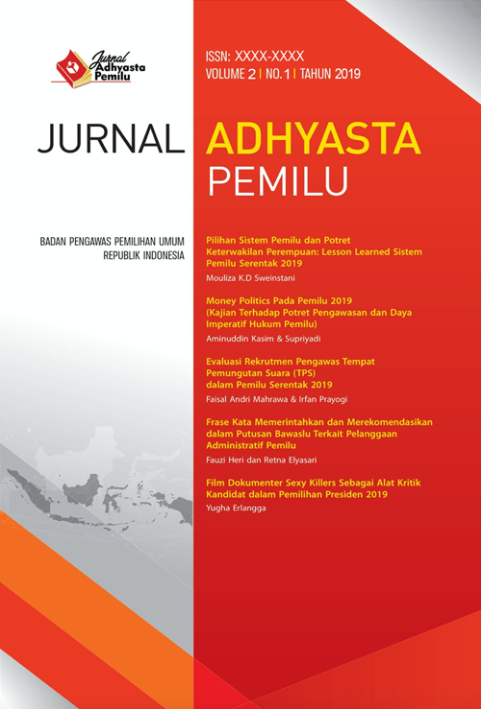Money Politics Pada Pemilu 2019
2019 (Kajian Terhadap Potret Pengawasan Dan Daya Imperatif Hukum Pemilu)
DOI:
https://doi.org/10.55108/jap.v2i1.36Kata Kunci:
election, law, money politics, campaign, criminal sanctionAbstrak
The one of legal functions performed by the Election Law is the function of controlling behavior in the context of social and political life . To carry out this function , the Election Law formulates imperative norms so that political behavior complies with election law . The imperative norm is in the form of rules that prohibit money politics during the campaign , the quiet period and when the ballot takes place . Then, if there is a violation of the rule of law , the culprit will face legal proceedings to obtain criminals sanctions in the form of prisons and fines. Identification of the problem in this research is: why the imperative norms of the Election Law are not effective in preventing the practice of money politics, and what factors influence the weak power of the electoral law imperatives so that massive money politics practices occur? That problem is discussed and analyzed in this article. The author uses normative jurisdiction research, besides that the writer also uses the imperative theory of Edward A. Ross, Achmad Ali’s legal function theory and Jimly Asshiddiqie’s law enforcement theory. From this study the authors found that when the 2019 Concurrent Elections took place, the imperative norm was not effective in controlling political behavior expected by the Election Law. The practice of massive money politics took place so that the process of democracy and the 2019 Simultaneous Elections occurred.
Unduhan
Unduhan
Diterbitkan
Cara Mengutip
Terbitan
Bagian
Lisensi
Hak Cipta (c) 2019 Aminuddin Kasim, Supriyadi Supriyadi

Artikel ini berlisensi Creative Commons Attribution 4.0 International License.



